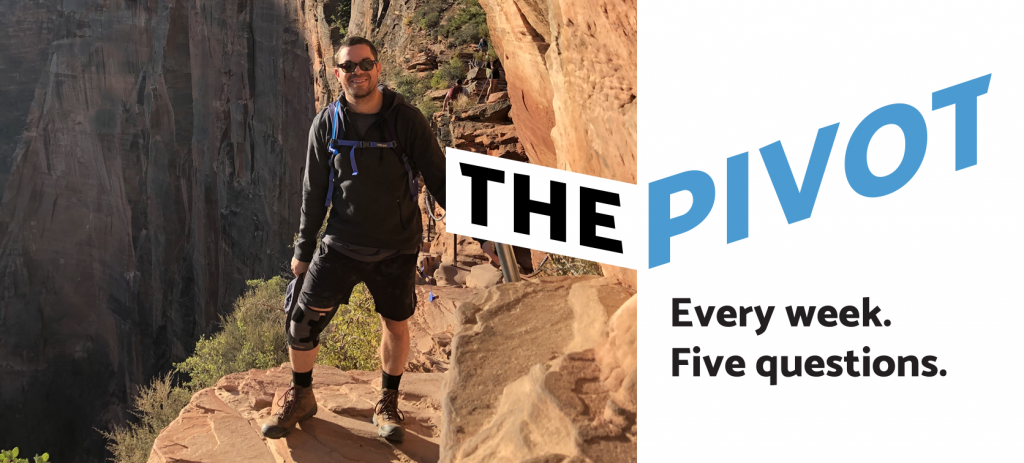 Dr. David Martinez works behind the scenes — but his research affects millions.
Dr. David Martinez works behind the scenes — but his research affects millions.

What’s your role in public health?
I’m a postdoctoral fellow working as a research scientist in Dr. Ralph Baric’s Lab at the UNC Gillings School. I work behind the scenes of public health. I’m not the person on the front lines interacting with the community — but I do my work because it helps people.

Can you describe your focus area in one sentence?
I study how the immune system responds to viral infection.
Over the years, I’ve focused on dengue, HIV and SARS-CoV-2 — the virus that causes COVID-19.
While I was a doctoral student at Duke University, Zika arrived on the scene. At that point, I thought, “The emergence of new viruses is something that will keep happening,” and that realization led me to the Baric Lab. They’ve been at the forefront on many emerging diseases and, as history repeats itself, I want to gain critical skills for combatting emerging and re-emerging viruses.
The theme of my career is to design countermeasures against new viruses from the 24 viral families that can infect humans. I’m most interested in developing vaccines for emerging viruses. This is long-term, preventative work — we were able to respond as rapidly as we did to COVID because of earlier, related research on the SARS and MERS coronaviruses.
In the lab, I’m currently focusing on a universal vaccine for all SARS-related viruses, for which we have applied for funding to start a Phase 1 clinical trial. If we could deploy these vaccines at the site of future outbreaks, we might be able to avoid them turning into epidemics or pandemics.

What brought you to public health?
I’m from El Salvador. I remember seeing anti-dengue campaigns there as a kid, and that’s what first got me interested in viruses.
I’ve always been drawn to science. I used to carry around little lab notebook with pasted-in animal pictures and facts, which I loved to study! My dad was a physician. He had a diagnostic lab on the second floor of his clinic where I used to play. He bought me a microscope, which led to me to taking things from his lab so I could examine them more closely.
As an undergraduate at the University of Oklahoma, I studied microbiology. I found viruses fascinating because they’re not sentient, but they act like they are.

How have you pivoted in response to the coronavirus pandemic?
In 2019, I was in the perfect place, already working with the world’s top coronavirologist. The rest, as they say, was history.
My background studying how different variants of dengue evaded antibodies was especially helpful when looking at COVID-19 variants. It felt good, if surreal, to publish papers and watch policy decisions come in right away based on work I was part of.
Of course, the experience of working to stop a pandemic in real time has also been hard. I’ve never contributed to anything this important. I do my job every day knowing that if it works out, the science will save thousands or millions of lives around the world — that’s the perspective I gained from being in the Baric Lab.
For example, we collaborated on the key studies for the preclinical development of both the Johnson & Johnson and Moderna vaccines, which are now protecting millions of people. To me, that’s incredible.

Dr. David Martinez cuddles with his cat, Meera.
And that’s the one positive, for me, of this dark global period and the intensely long hours our team has been putting in: In 20 years, we’ll be able to reflect on how we really helped by supporting the development of remdesivir, molnupiravir, the J&J and Moderna vaccines, and the Eli Lilly and AstraZeneca monoclonal antibodies.

Who are you when you’re at home?
I’m a husband and I’m a cat dad to Meera and Jojen, which might give away that I’m a Game of Thrones fan!
My wife and I are self-proclaimed foodies, and we love to explore restaurants. We just got back from a vacation hiking in Colorado, and now we’re binge-watching the HBO shows Succession and White Lotus.
Read more interviews in The Pivot series.
Published: 12/13/2021
